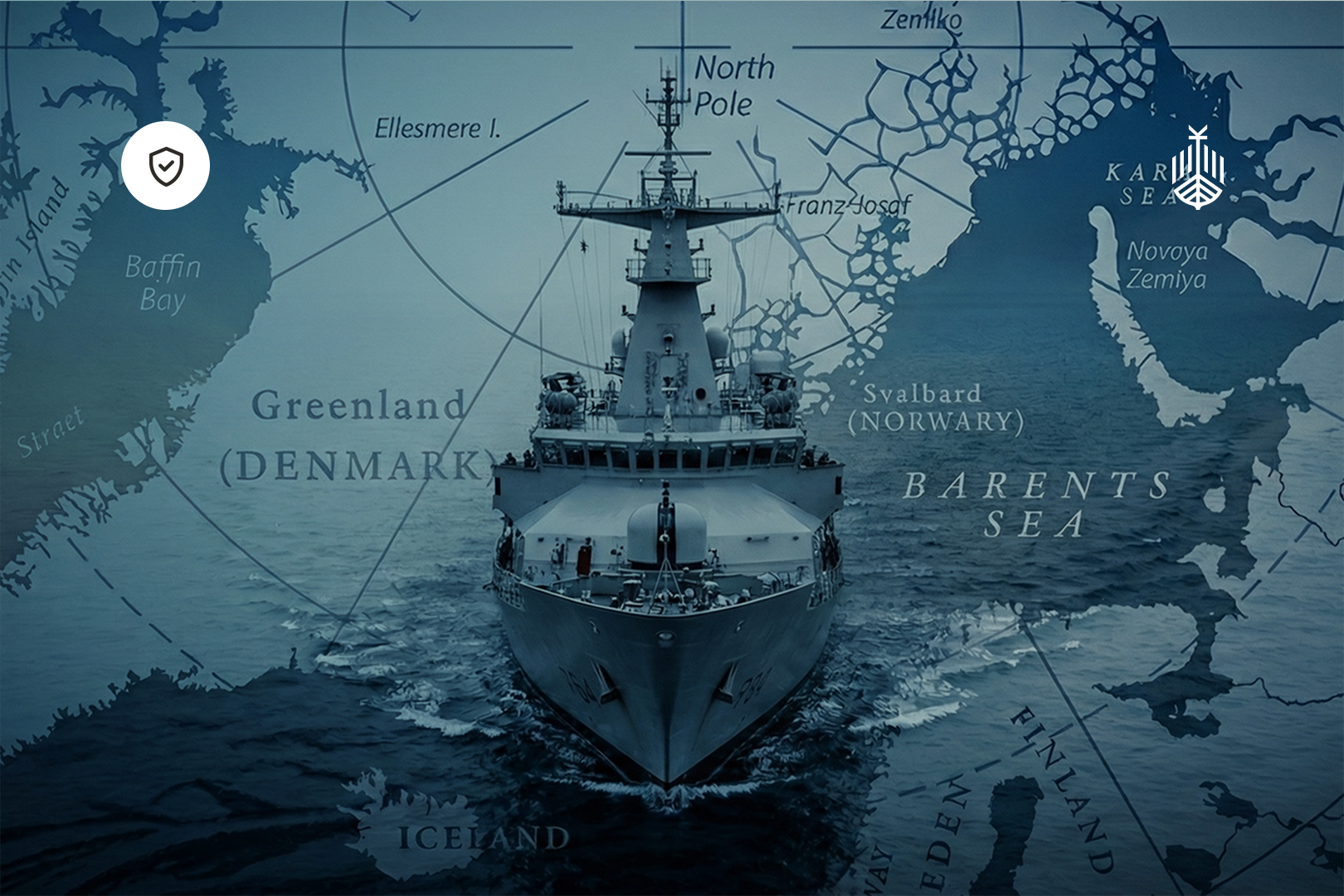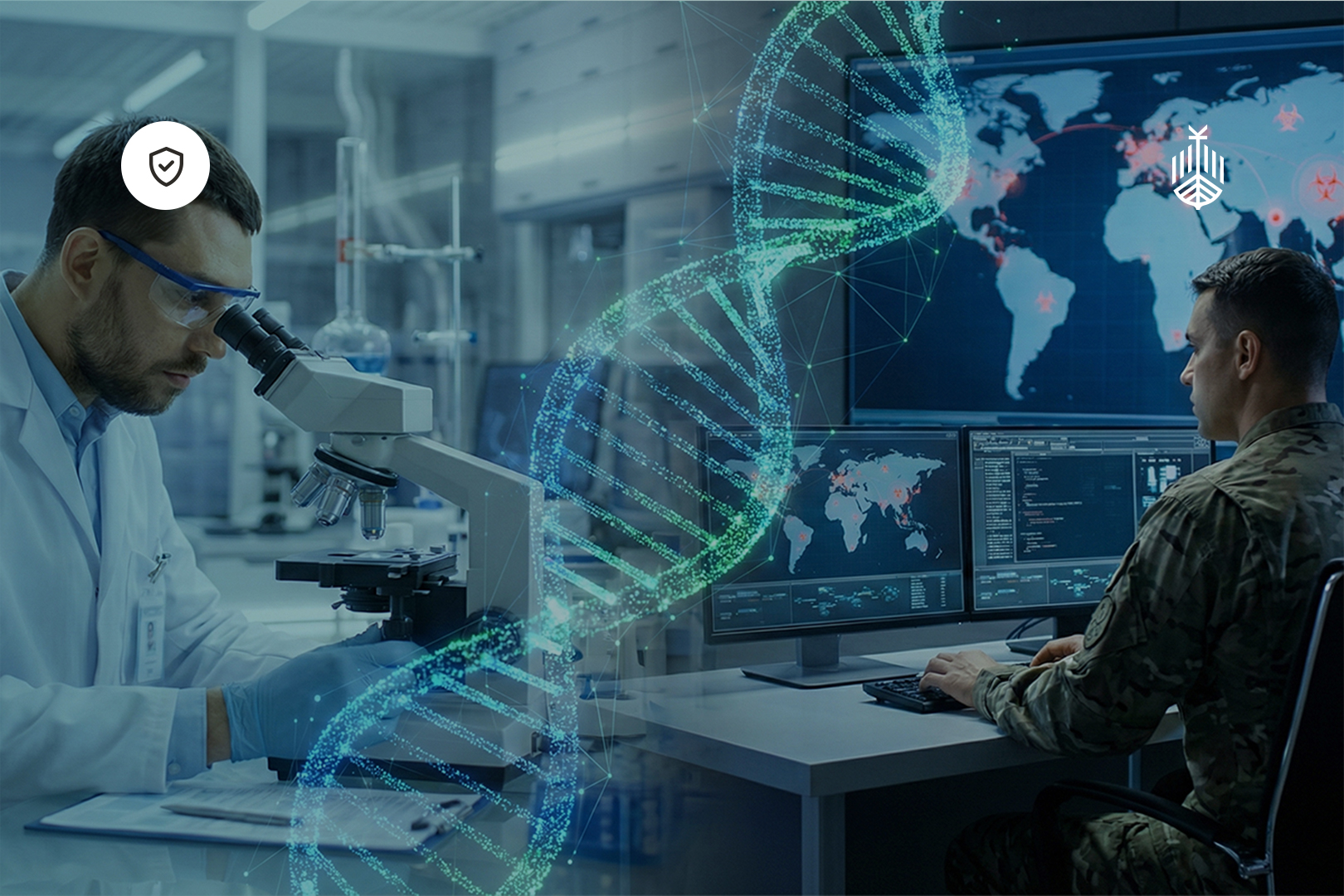In today’s interconnected world, the power of sharing information cannot be understated. At the heart of effective defense and security measures lies the exchange of mission-critical intelligence and actionable insights across borders. Ensuring the security of these exchanges is paramount.
Defense operations require coordination from the headquarters of major defense departments, offices, and establishments to the frontline field troops. The success of such operations can primarily depend on how relevant units and task forces are provided with the essential information at the right time.
Proper information sharing ensures a comprehensive understanding of the larger perspective in the overall functions of the military units. Moreover, establishing effective communication and exchanging information in real-time is critical to an operation's success.
The importance of communication in defense
Communication is the crucial link in the defense processes, as it determines operational outcomes and effective decision-making. The need for accurately communicated and timely information is at the root of combined defense operations.
Such operations connect diverse and heterogeneous defense agencies and allow them to harmonize their goals and coordinate their projects, which is critically important in terms of cooperation. When different branches of the military and intelligence bodies are involved, the failure or success of the mission objectives depends on the unhampered and timely sharing of accurate information.
Effective communication is also especially important during crises, which require fast order sharing to reduce confusion and obtain predetermined goals. Furthermore, it makes all the components of a military operation, right down to the frontline troops and up to the high command, well-coordinated and knowledgeable.
Communication also plays a crucial role in defense operations' training and development. It also offers a platform for guidelines and feedback, thus embracing the learning process and enhancing strategy improvement. This continuous feedback and learning cycle helps defense forces adapt, deter threats, and improve efficiency.
On a broader level, trust within the defense forces and with the public that they protect is highly dependent on open, accurate, and timely information sharing. This means that trust established builds confidence and credibility of defense forces.
Strategies for effective defense collaboration
In the sphere of global security cooperation, where the defense industry is rather diverse, the proper approaches to cooperation and coordination are essential. This starts with making sure that accurate information is available when it is needed.
(1) Access to information at the right time
Troops on the ground operate in challenging environments. Hence, defense communications involve sharing and accessing data across multiple devices and locations. Establishing situational awareness is challenging if troops don't have access to a unified view or to the right personnel at the exact right time.
Secure information sharing is fundamental to defense strategies, involving standardized processes and technologies to facilitate the exchange of information while prioritizing security and privacy. This approach is crucial amidst the increasing threats and vulnerabilities in cybersecurity, where data sharing needs to be managed carefully to prevent unauthorized access and ensure compliance with data-centric regulations.
Effective information sharing significantly enhances coordination among defense agencies by breaking down intelligence-gathering silos. This allows agencies to respond more swiftly and effectively to security threats, thereby preventing attacks before they occur. Interagency collaboration initiatives are crucial in this context as they help close gaps in intelligence analysis and promote a unified response to national security threats.
The implementation of reliable communication systems helps with sharing the plans and strategies of the mission together with any relevant information with the other partners, departments, and agencies.
(2) Secure mission-critical information
Defense and other federal agencies are targets of bad actors. As highly visible targets, any cyber attack could have far-reaching consequences. A breach that impacts communication networks and systems could disrupt key operations, impeding the ability to achieve mission objectives.
When it comes to making information available to the task forces, it’s essential to have a tight grip on the data — and employ strict information governance practices.
A commanding officer should have access to all operational blueprints and troop data, but roles like weapons specialist or IT defense team member should remain exclusive to their respective areas.
This is where role-based access control (RBAC) comes into play. It helps by designating data access based on user roles within your organization. This ensures only the right personnel have access to specific, relevant information, which prevents unauthorized access and maintains data integrity. In case of a data breach, RBAC makes it easier to identify which roles had access to the compromised data, leading to quicker resolutions.
(3) Protect information confidentiality
Per the U.S. Government Accountability Office, the U.S. Department of Defense reported over 30,000 cybersecurity incidents in 2020 alone.
Data breaches compromise sensitive information, operation plans, and national security. Especially in regulated industries such as defense, where classified information forms the backbone of operations, the importance of end-to-end encryption (E2EE) cannot be overstated. E2EE is not just a nice add-on; it’s a necessity to prevent unauthorized access and data breaches.
Therefore, the ability to have fully encrypted conversations is paramount in maintaining the confidentiality and integrity of sensitive conversations or exchanges of classified information. This also ensures that classified information cannot be intercepted or deciphered by unauthorized individuals.
Many governments and industries also have strict laws and regulations regarding the protection of data. Failure to comply with these regulations can result in severe penalties and damages to the organization's reputation.
(4) Promote trust among collaborators
One of the primary challenges in information sharing is the lack of trust among organizations. Nearly 40% of Chief Information Security Officers (CISOs) indicate that trust issues significantly hinder the process of sharing vital information.
This reluctance often stems from fears that sharing might expose sensitive company details or reveal non-compliance with regulations, potentially leading to breaches of customer privacy expectations. To counteract this, empower your defense personnel with the necessary infrastructure and governance to facilitate trust and collaboration.
Defense operations often incorporate advanced cybersecurity measures, secure communication channels, and thorough access control mechanisms to enable such an environment of trust. These security controls guarantee that sensitive information remains within the specific domain, thus minimizing the risk of data breaches.
Interoperability and secure messaging across different platforms and nations are vital for effective defense collaboration. Exercises like Global Sentinel demonstrate the importance of these strategies, as they involve multinational partners working together in complex scenarios to improve space situational awareness and operational collaboration.
It’s important to use a communication platform that facilitates the secure exchange of mission-specific information, tactical data, and strategic knowledge among various agencies and allies in any form, from documents and images to high-resolution and live-stream videos. The system should allow authorized personnel to access it securely at any time, from any location, with any device.
(5) Unify communications
Every department or branch relies on separate communication networks and tools for communication needs. This creates isolated and siloed pockets of information, where details can fall through the cracks. The lack of a unified picture handicaps commanders from making well-informed and intelligence-led decisions.
The command and control system (C2) works fast to collect and understand information; however, disparate communication systems slow down responses when time is of the essence, impacting leadership’s ability to make well-informed decisions.
The importance of real-time intelligence sharing is underscored by initiatives like the Combined Air Operations Center at al-Udeid Air Base in Qatar, which facilitates the sharing of air threat data and other military intelligence among U.S. and Middle East partners. This capability is crucial for maintaining situational awareness and coordinating responses to emerging threats.
Combine intelligence by gathering information from different sources for a single source of truth. Defense personnel should be able to bring everything under a single roof — chats, calls, projects, people, tools, planning boards, and workflow — for a single source of truth to make informed decisions. The end result is a unified view that facilitates a comprehensive understanding of operations, allowing for swift, informed decision-making that is paramount to the mission's success.
Conclusion
Effective information sharing heavily depends on the software you use.
Moving forward, the necessity for secure, efficient, and interoperable information-sharing systems remains paramount. As the global security environment continues to change, so too must the strategies employed by defense organizations worldwide. By prioritizing transparency, enhancing cybersecurity measures, and fostering international cooperation, the defense community can better navigate the complexities of modern warfare and cybersecurity challenges.
Dependable software ensures seamless interconnectivity of cross-platform messaging and consolidates data and communication, enhancing productivity. Reliable and secure tools are at the heart of international defense cooperation, creating the conditions that promote efficient and timely cooperation as well as the security of information exchanges for a safer world.














